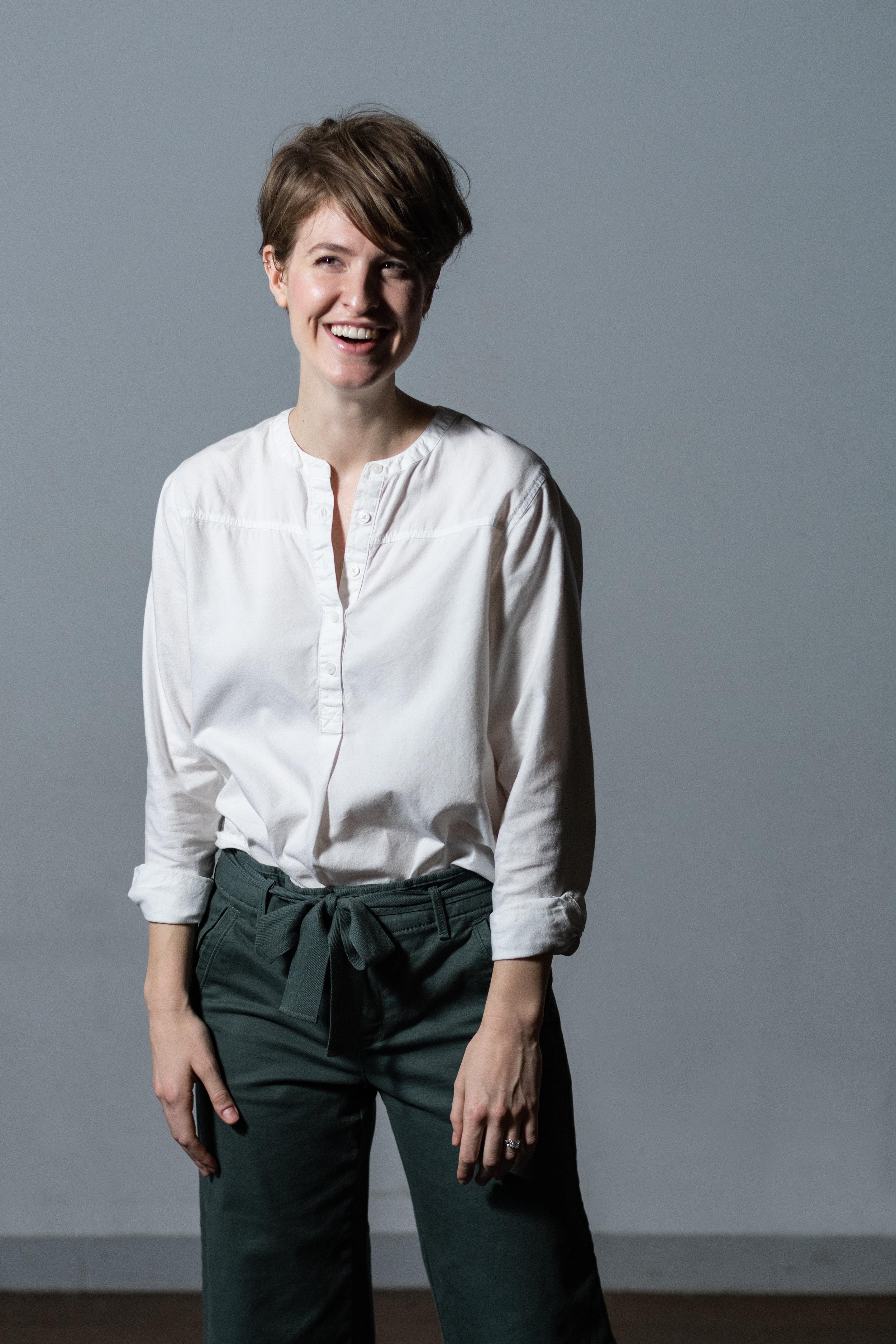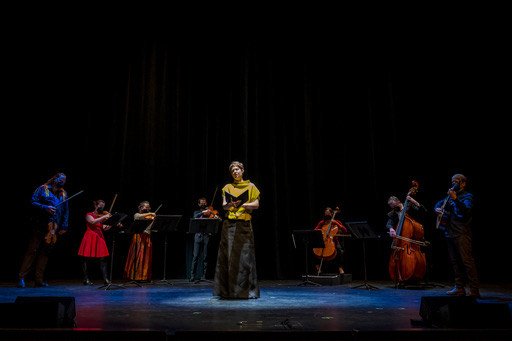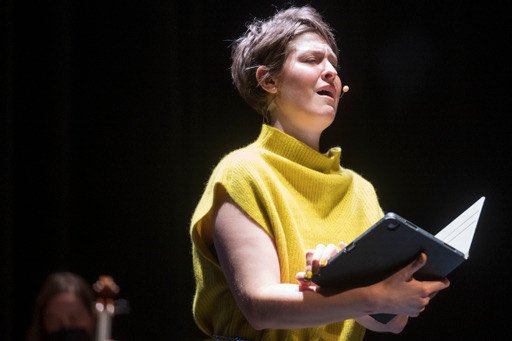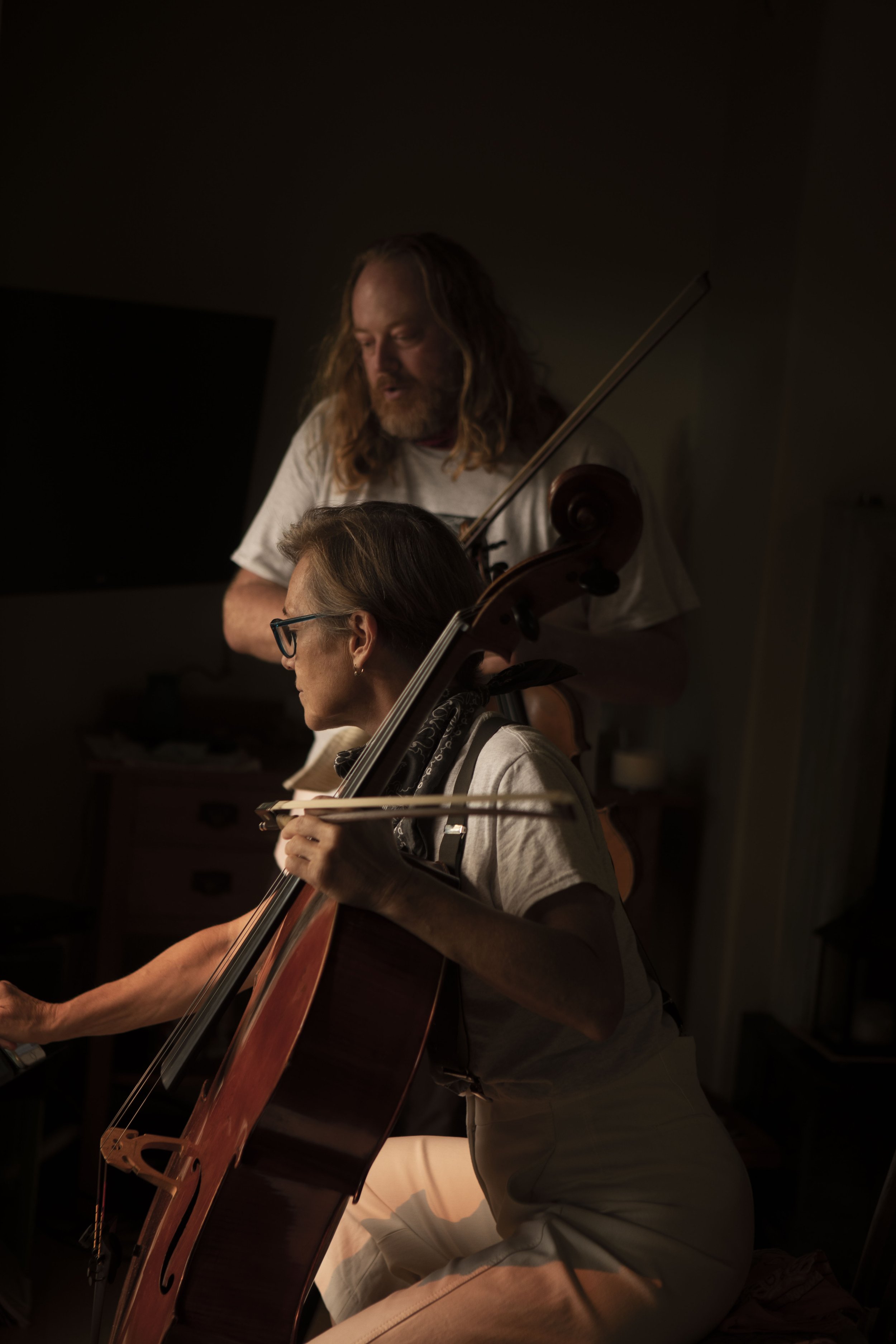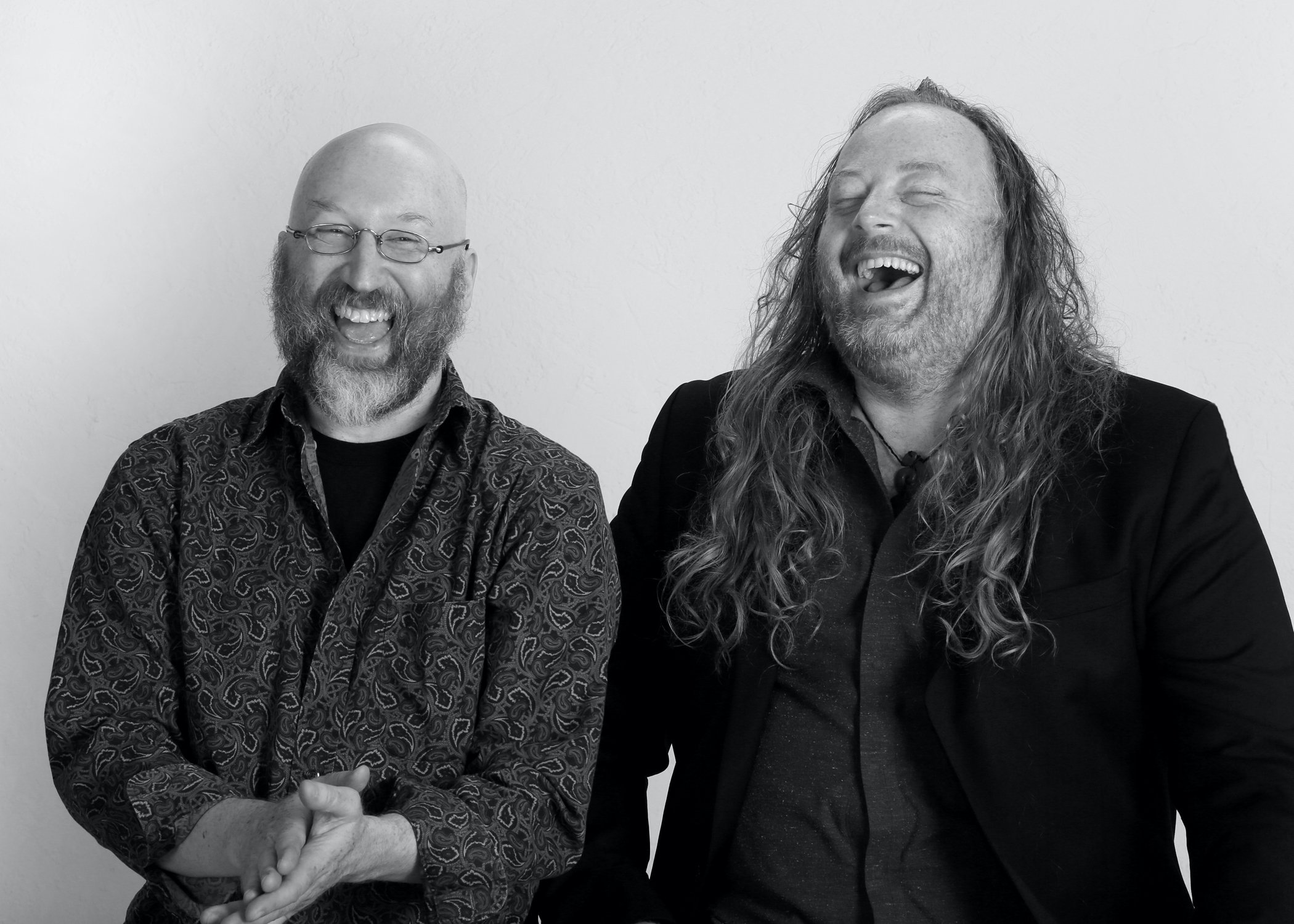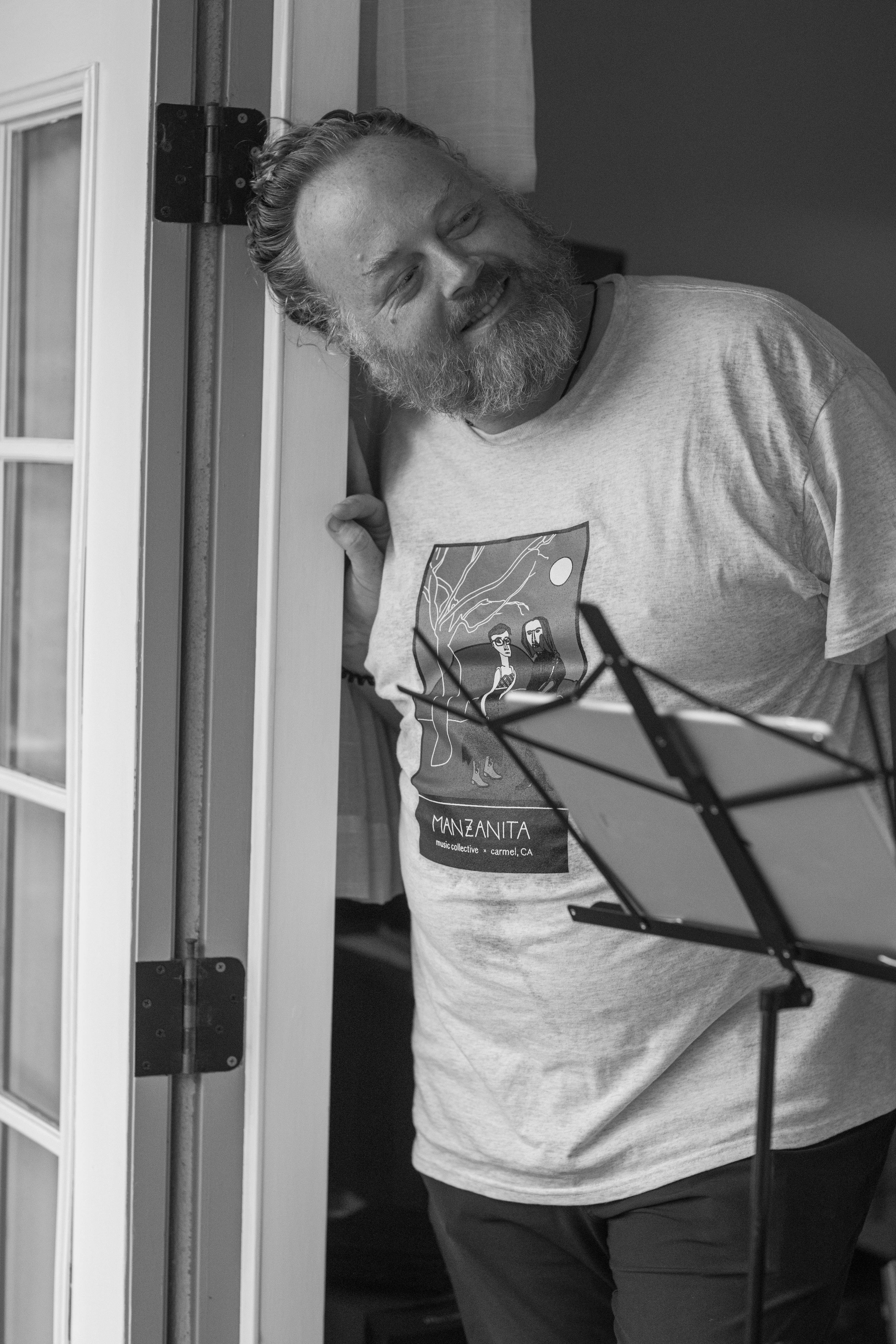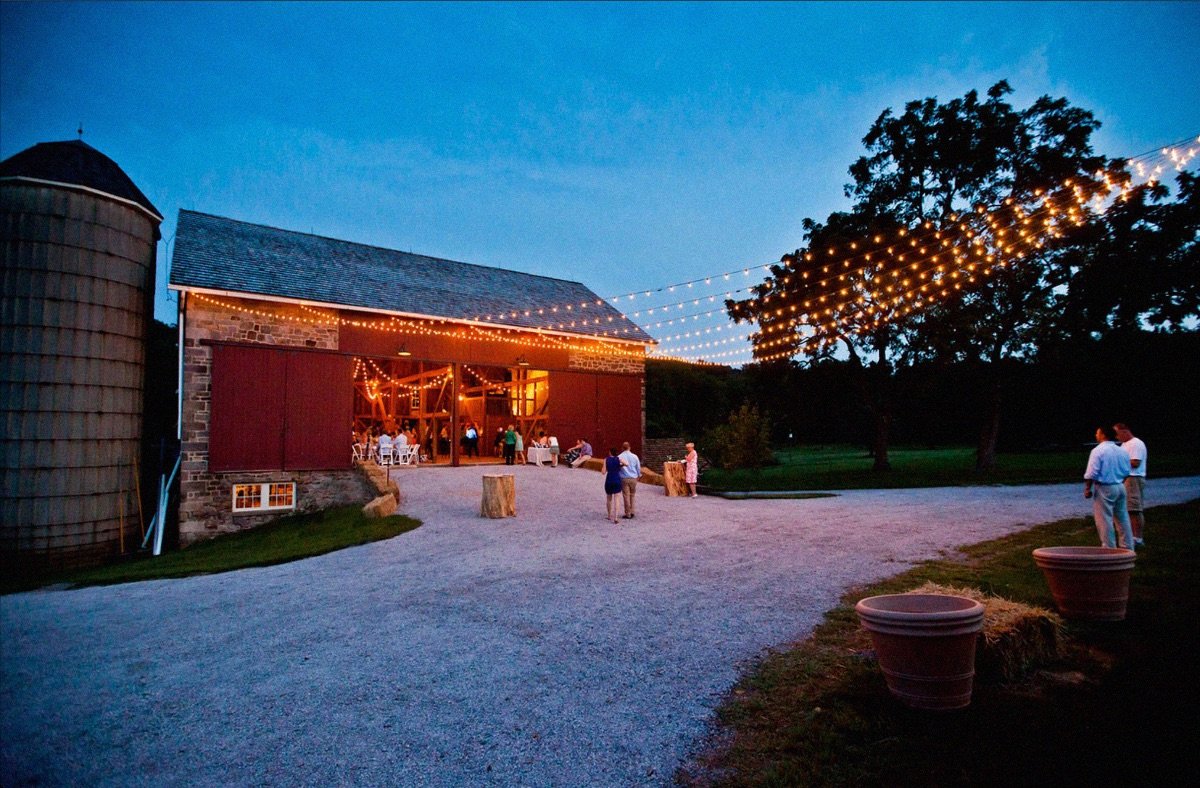Pictured Above: Images 1-3: Soprano Chelsea Helm - Credit: Caitlin Oldham & Nic Coury; Violinist Edwin Huizinga & Executive Director Michelle Djokic - Photo Contributed; Harpsichordist Elliot Figg & Violinist Edwin Huizinga - Credit: Melinda David Secord; Violinist Edwin Huizinga - Photo Contributed.
Written By Lori Goldstein for MK Hammerstein’s Arts News
Bach, Handel, Vivaldi and Purcell may be the most well-known composers of the Baroque era, yet none of their work will be heard during Concordia Chamber Players’ ChamberFest 2022 on September 10 at Glen Oaks Farm in Solebury, PA. That is because the program, titled Il Fattore XX—The Female Factor—was generated by artistic director Michelle Djokic’s excavation of “lost” pieces composed by of all people, women, during the Baroque era of the 17th century.
Commonly referred to as music “from behind the convent walls,” it was highly valued in Italy even when the composers left their nunneries. Why their work disappeared from performances in future centuries is a matter of speculation. With the mission to restore these gems, Michelle called upon some of the best baroque performance specialists she knew—violinists Edwin Huizinga and Manami Mizumoto, harpsichordist Elliot Figg, and soprano Chelsea Helm—to bring this concert to fruition.
Edwin Huizinga & Michelle Djokic. Contributed
One might say it was an organic process involving thought-provoking emails among the artists situated in different locales. It started with Michelle and Edwin, who had performed socially distanced concerts on the porch of Michelle’s home in Monterey during Covid. Michelle expressed an interest in mounting a concert of baroque music, which isn’t her specialty. Edwin asked, “Are you ready to put gut strings on your cello?” (Baroque strings are made from sheep intestine, called catgut. Non-baroque instruments use strings made of steel, nylon and other synthetic materials.) Michelle said, “Yes, yes let’s do it!” Hence the name for Chamberfest’s ensemble: the Gutsy, Plucky Band.
Elliot Figg & Edwin Huizinga. Photo Credit: Melinda David Secord
Edwin then reached out to Elliot Figg, with whom he performs in their baroque ensemble Acronym and with whom he has recorded an album titled Sonic Ghosts. Two years ago he met this “amazing soprano,” Chelsea Helm, at the Carmel Bach Festival. “My jaw just dropped when we started working together. I love her vibe, it’s so real, her voice is one of a kind, like many of our really great sopranos are these days.”
He also called upon Manami Mizumoto, with whom he’s played a lot in the past two years. “She has an incredibly unique voice on the violin. And she has composed a small instrumental piece for the concert. It may also have a little bit of improvisation,” which baroque artists love to do.
When Edwin was on the road in August with his Grammy-award- winning classical guitarist William Coulter, he took time to speak to me about his knowledge of female baroque composers such as Barbara Strozzi and Isabella Leonarda. Although Edwin was familiar with them, he hasn’t performed their music up until now. He thinks “they are absolutely on par with male composers from that era. And to be honest, we don’t really know how many female composers there were because some used male names.”
Edwin speculated, “That’s what they had to do to get amazing performances. And the other thing with that time period which I love so much is that everyone was a player. Everyone played and composed. There wasn’t really a situation where you only did the composition and you sent it off to the players. You were likely in the ensemble.”
Another hallmark of the Baroque era is that “the compositions weren’t really reveled in or relished in the way they are now,” Edwin explains. There was a more utilitarian outlook: “It was much more like, ‘okay, you composed for this concert. Let’s move onto the next concert and we have to compose something new.’”
During the course of our interview, Edwin showed me a lengthy email thread among the five musicians--a cross-pollination, you might say, of musical ideas about the program they were in the process of creating. “I think it’s so important for…Chelsea to say I would love to sing this piece because I have a connection with it,” which he knows the audience will sense. That unspoken validation between the artist and the listener is paramount.
Edwin referred to the important conversations he and Chelsea had about “why, why we want to play a concert, why we sing, why we care about what we’re singing and playing…what we’re saying in the musical community, and that we’re advertising how we feel about our lives on earth and what we want to say. We can talk a big game, but I want to do the things that I care about, so I’m really excited to raise up some of these incredible female composers.”
“I was also trying to see what Elliot loves to play, because the more we get invested, the more of our ideas get put to the forefront.”
Within the chordal structures of baroque music, there is much room for improvisation and ornamentation, or the embellishment of a melody either by adding notes (such as a trill, a rapid repetition of one note) or by modifying rhythms. “The way that Elliot plays is so unique,” says Edwin. “He expands everything and he’s not afraid to try completely different structures.”
“Often the basso continuo is what we call a bunch of goose eggs (whole notes that are the basic chord). The real thing is showing the audience and each other how the conversation is so important, and what I think that does …for you and the audience, you feel the power of listening and caring for each other and sharing those little moments where it often inspires people to go out of their comfort zone.”
Knowing that Edwin has played in the most majestic concert halls around the world, and forgetting that he grew up on a farm in Ontario, Canada, I asked him what does he expect it will be like playing in the barn of Glen Oaks Farm, where the bottom floor once stored the animals and the musicians will be playing on the second floor.
“I grew up with goats and chickens, I was very sheltered in the most beautiful of ways in my opinion. I can’t tell you how much I practiced in a barn my whole life. And yes, I love performing in unbelievable palaces and concert halls, but it’s so special to just realize and share the music that matters in a comfortable situation for everyone. That’s something I’ve really been thinking about a lot: presentation but also expectation, and I think there’s something beautiful about playing in a casual environment where people can maybe shed some of their walls, because how fancy or worried are you going to be in a barn?”
In regard to the evening of Chamberfest, Edwin expresses the hope that the audience will “feel the connection from that time to now. I want them to feel that especially the songs are stories about the human condition. Whatever the text is actually about, whether it’s a love story or a sad story or a story about a death, or resentment or passion–it’s very much about the human condition--which we all deal with every day in our lives.”
“The other huge thing for me is the conversation. For me, when people hear a baroque concert, it’s so conversational, it’s so important to be completely present in what’s happening in the moment because, for example if I start ornamenting, and Manami could be playing the same phrase one or several bars later, and we want to imitate each other, we want to egg each other on, we want to [say]…’I was listening to that, I would like to play that and add a little bit’, then Elliot will think, ‘oh, that’s where we’re going’” and Edwin can count on him and Michelle to take the conversation to another level. “It’s very much like my dream suggestion to humanity.”
To learn more about Concordia or to experience ChamberFest, visit https://concordiaplayers.org

